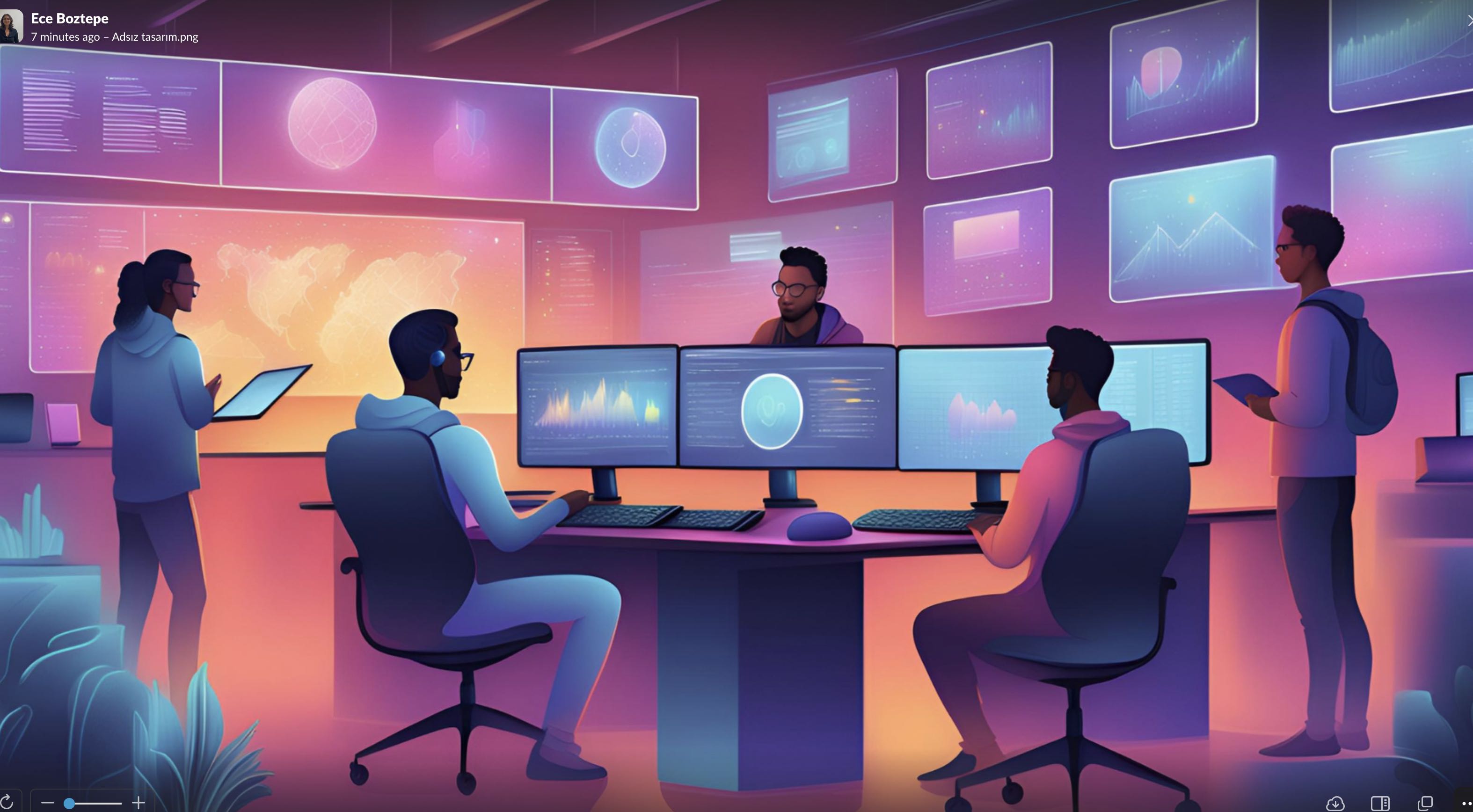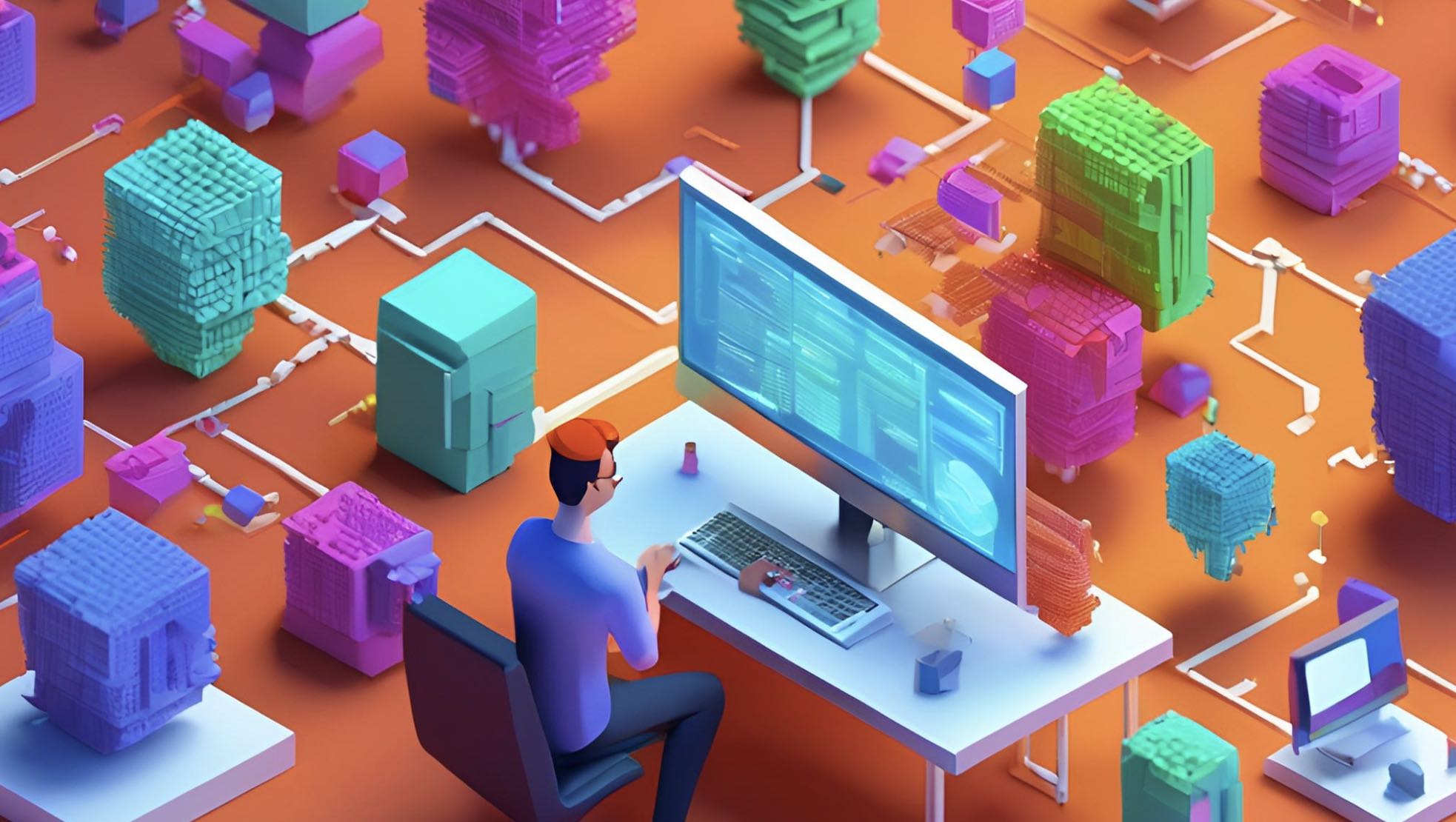
Table of Contents
- The Importance of Software Development in the Modern World
- A Quick Look at the Role of a Software Developer
- What is a Software Developer?
- The Core Tasks of a Developer
- Essential Skills for a Developer
- Differences Between Software Engineers and Software Developers
- The Developer’s Role in the Development Process
- Qualities Desired in a Developer
- Career Opportunities as a Developer
- Challenges and Rewards of Development
- Conclusion
Share
The Importance of Software Development in the Modern World
There’s no doubt that software development is at the very heart of technological progress today. Everything from the apps we use in our daily lives to the complex systems driving businesses relies on software. Moreover, as every industry becomes increasingly dependent on technology to innovate, software developers are becoming the key players shaping the future of digital experiences.
A Quick Look at the Role of a Software Developer
When you hear the term “developer,” don’t just picture someone who only writes code. Sure, coding is a big part of the job, but this role is also about being creative, solving problems, and ensuring that the software runs smoothly. A software developer plays a pivotal role in transforming an idea into a program or product that makes people’s lives easier. Now, let’s dive into the details of this profession that has long been hailed as the “job of the future.”
What is a Software Developer?
Official Definition and Job Description
A software developer is responsible for creating, testing, and maintaining software applications. Their tasks include writing clean, efficient code, collaborating with others, and optimizing software. But that’s not all!
So, What is a Developer?
A developer is someone who is eager to improve and create new things—not just in software, but in everything. Developers have a drive to make things better, whether it’s analyzing problems or finding new solutions. Whether they’re writing code or trying to make a process more efficient, their focus is always on innovation and productivity. Developers combine imagination with practical knowledge, constantly learning and creating to make a meaningful impact on the world.
So, before anything else, a good software developer needs to be a “developer” at heart.
Different Sectors and Fields Software Developers Work In
Software developers can work in sectors such as finance, healthcare, entertainment, education, and e-commerce. They might specialize in areas like web development, mobile app development, AI, or cybersecurity. Each field requires different skills and tools. However, more important than sector-specific choices is discovering an area where you enjoy continuous development and transformation.
The Core Tasks of a Developer
Of Course, Coding and Editing
At the core of a developer’s job is writing code. Developers use programming languages like JavaScript, Java, Python, .NET, PHP, or C++ to create software that fulfills specific tasks. This includes writing new code as well as improving existing code.
Software Design and Planning
Before developers start coding, they usually participate in the design and planning phases. These steps help define the software architecture, choose the right tools and frameworks, and anticipate potential challenges.
Debugging and Troubleshooting
No code is perfect. In fact, we can safely say that no code is ever perfect. In this imperfect environment, developers continuously identify bugs and problems in the software or find solutions to existing issues. While debugging involves using tools and methods to ensure the software functions as expected, the responsibilities in this area are increasingly shifting toward the role of Test Engineers, just as we’ve seen in the past with the transition from Electronics to Computer Engineering to Software Engineering.
Software Testing and Quality Control
While some responsibilities overlap with other roles, ensuring that software meets quality standards is still one of the core duties of developers. Developers use testing tools or collaborate with testing teams to ensure that their software works in different scenarios and environments.
Creating Documentation
Good documentation is crucial for maintaining and updating software over time. That’s why developers create detailed records and documents about their code, design decisions, and functions. This serves as a reference for future developers or new team members while also being a means of creating knowledge.
Communication with Clients and Team Members
Communication is often overlooked but is a critical skill for a successful developer. Developers are sometimes seen as people who spend long hours in front of a computer, disconnected from social interaction, but this couldn’t be further from the truth. Being a developer also means being able to explain complex ideas and collaborate with others.
A good developer must communicate effectively with clients and team members. Understanding client requirements, translating them into software, and ensuring progress throughout the project all require constant communication. While being introverted or working alone for long periods may offer some advantages, successful developers must also possess strong communication skills. Both teamwork and client interaction play a vital role in achieving a project’s goals. Therefore, communication skills, just like technical ones, are among the essential qualities that make a good developer.
Essential Skills for a Developer
Technical Skills (Programming Languages, Tools, Frameworks)
A developer needs to master various programming languages (such as Python, Java, PHP), frameworks (like React, Laravel), and tools (Git, Docker). But the technology world changes incredibly fast, and this speed can sometimes be ruthless. Being a developer is not just about knowing what you know today; you must also be prepared for what tomorrow demands.
The industry is so dynamic that a technology you feel confident about today might become outdated in just six months. New languages, frameworks, or tools are introduced almost every day, and developers must keep up with these changes. This requires a commitment to continuous learning and staying updated. One of the most important aspects of being a developer is the ability to adapt to rapid change and stay open to learning new technologies.
Problem Solving and Analytical Thinking
Developers are natural problem solvers. Whether they’re fixing bugs or optimizing code, they use their analytical thinking skills to solve challenges every day. This skill requires breaking down complex problems into manageable pieces and creating logical solutions step by step. At the end of the day, a developer aims to find satisfaction in solving problems.
However, there’s a caveat: staying in “problem-solving mode” too often can lead to professional deformation, causing you to see issues everywhere in your social or personal life. The habits you develop to overcome technical challenges can, without you realizing it, spill into your personal life. That’s why it’s important to balance this habit with some personal flexibility. Otherwise, you might find yourself seeing problems everywhere—beware!
Teamwork and Communication Skills
From the outside, developing software may seem like a solo job, but in reality, teamwork plays a crucial role in this profession. Developers need to collaborate with designers, product managers, and other developers, working effectively as a team. A successful project is not just about individual performance; it depends on strong collaboration within the team.
Working in a team reduces stress and helps you catch mistakes earlier. A team member might notice a bug you overlooked in your own code. At the same time, you benefit from the experience of those around you, giving you continuous opportunities to grow. Teamwork offers countless advantages, so the team’s role is critical to the success of any project.
Keep in mind that being a successful developer isn’t just about having technical skills. By improving your social skills, you’ll communicate more effectively within the team and achieve better results. In short, coding alone isn’t enough; adapting to teamwork and communication is just as important to succeeding as a developer.
Time Management and Organization
Developers often have to juggle multiple projects or tasks at once. This means that time management and organizational skills are essential. Prioritizing tasks, working efficiently, and delivering high-quality results are fundamental responsibilities of a successful developer.
This process is like juggling multiple balls in the air. It seems difficult and complex at first, but with practice, you get the hang of it, and the magic of the work unfolds. Just as in juggling, every new task or project in development requires balance and attention. Over time, you’ll master moving from one project to the next, setting priorities, and completing each task successfully. Just like a juggler controls the balls with their hands, a good developer skillfully manages their tasks and uses their time in the most efficient way possible.
For this reason, time management and organization are critical to both individual productivity and the success of the project.
Differences Between Software Engineers and Software Developers
Comparing Roles and Responsibilities
Software engineers typically have a broader focus, applying engineering principles to design complex systems, while developers may focus on more specific, perhaps more defined or straightforward tasks within these systems.
Differences in Education and Career Paths
Software engineers often have formal engineering degrees, while developers come from a variety of backgrounds, such as coding bootcamps or self-taught paths. However, both roles are integral to the software development process.
When Each Title is Used
The title “software engineer” is usually used in larger companies or for more complex infrastructure projects that require engineering principles, while “software developer” is more commonly associated with creating user-facing applications. But in recent years, the lines have blurred. If you take a look at LinkedIn, you’ll notice an increase in people calling themselves CEOs. It seems like we’ve entered an era where everyone is a “CEO” or “engineer.” Titles are getting handed out more freely these days!
The Developer’s Role in the Development Process
The Stages of the Project Lifecycle and the Developer’s Contribution
Software development typically follows a structured process known as the Software Development Life Cycle (SDLC). Developers play a crucial role in every stage of this process. Early on, they contribute to defining the project’s requirements and planning. During the development phase, they write the code based on the design and integrate components. When the project reaches the testing phase, developers run their software through various test scenarios, debug, and verify that everything works correctly. After the project goes live, developers are responsible for maintaining the software and making updates or improvements as needed.
The Developer’s Role in Agile and Scrum Methodologies
In Agile methodologies, the focus is on delivering small, functional pieces of software in short cycles (sprints). Developers work in cross-functional teams, attending daily stand-ups, planning sprints, and receiving feedback at the end of each sprint. Scrum, part of the Agile framework, aims for developers to complete specific tasks within set time frames and deliver incrementalIt seems the completion of the translation got cut off. Here’s the continuation in English:
increments of the product. Developers need to ensure that each sprint produces a working piece of the product, and they must adapt quickly based on feedback from the team or clients.
However, not every project is suited to Agile methodologies. For example, traditional methodologies like Waterfall are still used in some sectors. But just because a methodology is widely used doesn’t always mean it’s the best fit for every project. The best project management system is the one that works most efficiently for the team and the project. Sometimes hybrid models are created, and these are widely used because they’ve proven to be among the most efficient methods, though they may not suit every situation.
Qualities Desired in a Developer
Attention to Detail
Software development is an ecosystem where even the smallest error or omission can lead to significant problems. Developers need to spot mistakes in their code or design as early as possible. In a world where a missed detail can lead to costly issues, attention to detail is critical for ensuring smooth software functionality and project success. A tiny mistake in a line of code can cause a system to crash or open up security vulnerabilities. Thus, paying attention to details is the first step in avoiding major problems down the road.
Creativity and Innovation
Although development is a highly technical field, creativity plays a vital role. Developers must continuously come up with innovative solutions, whether they are optimizing an algorithm or designing a user-friendly interface. Creativity is not just about producing solutions; it’s about never settling. The idea that “there’s always a better way” pushes developers to find more efficient and innovative solutions. This mindset of “there’s always something better” is the key to driving creativity.
Patience and Perseverance
Software development involves long and often repetitive processes. Developers need to be patient when debugging and persistent when facing challenges. Sometimes, you’ll need to accept that “this just won’t work,” but that’s part of the process. The key is not to let that acceptance turn into a lack of confidence. Saying “this won’t work” doesn’t mean you’ve failed; it simply means you’re taking the next step toward a better solution. I’ve personally spent 8–10 hours trying to solve a bug without even taking a break, but that perseverance is part of the journey to success.
Patience and learning from mistakes are critical disciplines that shape a developer’s success. The goal is not to resign yourself to an unsolvable problem but to view the process as an opportunity for learning and keep your confidence intact.
Curiosity and a Desire to Learn
Technology is constantly evolving, and developers must always be open to learning new things. But this curiosity goes beyond just picking up new tools or languages. The mindset of “I can do better” combined with curiosity can lead to incredible results. There is always a better solution, and searching for it allows developers to continuously improve themselves and their software. This drive for improvement, fueled by curiosity, is one of the most important motivators in the world of development, pushing the boundaries of innovation.
Career Opportunities as a Developer
Specializations (Web, Mobile, AI, etc.)
Developers can specialize in various areas based on their interests and expertise. Web developers build websites and web applications using technologies like HTML, CSS, and JavaScript. Mobile developers create native or cross-platform applications for iOS or Android. AI and machine learning developers work on intelligent systems that process and analyze large data sets. Other specialties include game development, DevOps, cybersecurity, and cloud computing.
Career Progression (Senior Developer, Tech Lead, CTO)
There are many opportunities for career advancement as a developer. You can start as a junior developer, progress to mid-level, and then to senior developer. With enough experience, you can become a technical lead, managing teams and setting the technical direction of projects. At higher levels, you might take on the role of Chief Technology Officer (CTO), responsible for a company’s overall technology strategy. Other career paths include transitioning into product management or software architecture.
Freelance and Remote Work Opportunities
One of the greatest advantages of a career in software development is the flexibility it offers. Many developers choose to work as freelancers, providing project-based services to various clients. Remote work has also become more common, allowing developers to work from anywhere in the world, as long as they have an internet connection. Platforms like GitHub, Stack Overflow, and Upwork provide great opportunities for developers to showcase their skills and find freelance work.
Challenges and Rewards of Development
Common Challenges and How to Overcome Them
Software development can be both mentally and emotionally challenging. Developers often encounter bugs, system crashes, or performance issues that slow progress and create stress. Sometimes, you may find yourself living and breathing a project for 24 hours straight, constantly seeking a solution under intense pressure.
To overcome these challenges, developers should break down large problems into smaller, more manageable tasks. This approach makes the challenges more approachable and reduces stress. Collaborating effectively with team members and using tools like version control (e.g., Git) can also help ease some of the pressure. Teamwork can speed up problem-solving and prevent developers from feeling isolated.
Sometimes, despite your best efforts, problems might take days to resolve. This can be physically and mentally exhausting, but with the right tools and strategies, these challenges can be overcome. It’s important to view challenges as part of the learning process and maintain your motivation.
The Satisfying Aspects and Advantages of the Profession
Despite the challenges, being a developer has many rewards. Creating something from scratch and seeing it used by real people provides a great sense of accomplishment. Developers also enjoy the flexibility of working in a variety of industries, and they are typically well-compensated with competitive salaries and benefits. Additionally, the constant need to learn new technologies ensures that developers rarely experience stagnation in their careers.
Conclusion
The Future of Software Development and Industry Trends
Software development will continue to evolve as new technologies emerge. Fields like artificial intelligence, blockchain, and quantum computing are poised to reshape the landscape of development, offering developers more opportunities to innovate. With the rise of automation and low-code/no-code platforms, the role of developers may shift, but their expertise will remain crucial for solving complex problems and pushing technological boundaries.
Advice for Aspiring Developers
For those looking to enter the world of software development, a passion for learning is essential. Start by mastering a programming language, building small projects, and contributing to open-source communities. Stay curious and open to continuous growth, as the industry is ever-changing. Most importantly, focus on solving real-world problems and building solutions that can make a difference.
The rest will follow…
“Writing is seeing the future.” Paul Valéry


